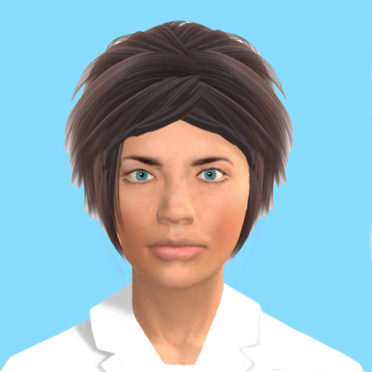Potential shoplifters could be deterred if supermarkets introduce digitised human faces at their self-service checkouts, researchers have found.
The team at Abertay University in Dundee said the presence of another person, albeit a computer generated one, might be enough to reduce the temptation to steal.
It follows previous studies which have shown people are more likely to take a chance on being dishonest if they are not being monitored — creating a headache for retailers as self-scanners become more widespread.
The Abertay researchers designed virtual characters to test whether their presence at tills would influence shopper behaviour.
A self-service checkout scenario was created and participants were asked to scan or weigh items before paying for them.
The test gave the “shoppers” the opportunity to select lesser weights or scan fewer items in an attempt to save money.
When the team analysed the results, they found customers were much less likely to shoplift, or cheat on their bill, if they had a realistic human-like face looking over them.
Susan Siebenaler, who conducted the research for her PhD, said: “The participants were placed in situations in which they could benefit financially through dishonest behaviour.
“Participants appeared to be positively influenced by greater social presence, such as human-like features, which meant they were less likely to cheat.”
Dr Andrea Szymkowiak, senior lecturer in human computer interaction, said future studies could demonstrate whether or not the technology would be a worthwhile addition to stores..
She said: “People are responsive to social human cues, and there seems to be an in-built mechanism that makes us respond to faces and eye contact.
“The idea here is that the presence of human-like digital characters may influence shopper behaviour, but further research is required to determine the real-world benefit of such technology.”
Last, year it was announced that Abertay University would lead a £11.7 million project that will create a new cyber security research centre as part of the Tay Cities Deal.
The university has been rated the number one university in Europe for undergraduate computer games study, and top 10 in the world for postgraduate degrees.










